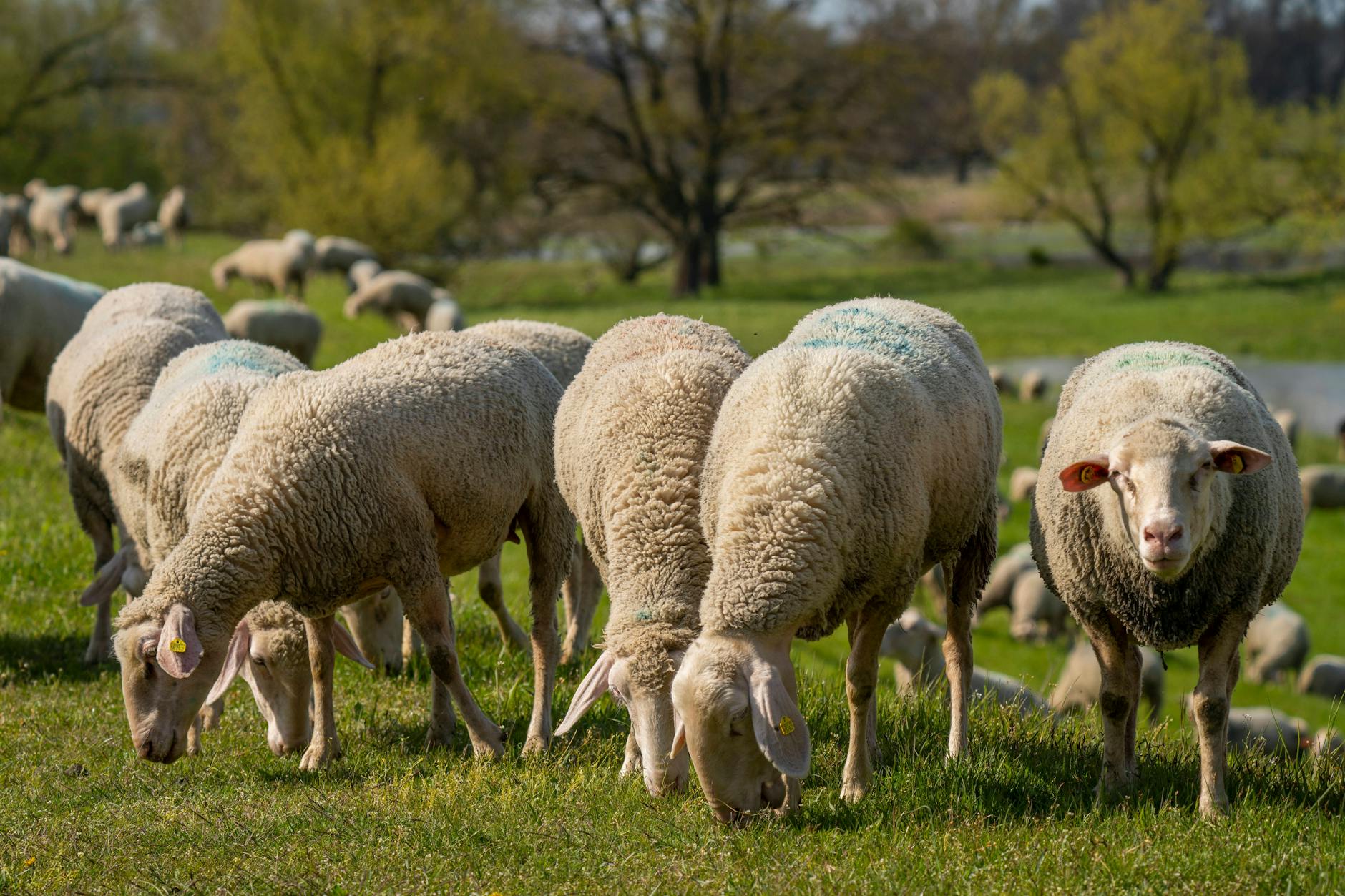Dispute over wolves: Brandenburg shepherd defends dismissed state secretary

The dispute over wolves is escalating in Brandenburg's Ministry of Agriculture. A shepherd explains his views on hunting quotas, carcass guards, and the minister.
On his pasture in Brandenburg, the sheep graze peacefully behind the fence. A pack of wolves lives just a few hundred meters away. Jonas Scholz, chairman of the Berlin-Brandenburg Sheep Breeders' Association, knows the animals – and how close they come to his flock. "Hunters tell me that the pups play 30 meters from my paddock," he says. "I'd like it to stay that way. If these wolves also manage to get past my protection, they must be shot, but not before."
Scholz isn't against wolves, but he's aware of the strain the predator places on his profession. "Livestock protection places a huge strain on businesses and hobby farmers," he says. In addition to the costs, it's primarily the time commitment that pushes many shepherds to their limits. "This is especially precarious in times of skilled labor shortages."
Since 2021, Scholz himself hasn't experienced an attack—a stroke of luck for him, as many colleagues have not been so spared. With around 60 packs, Brandenburg is considered one of the wolf strongholds in Germany. Estimates vary regarding the exact number. The now-retired Brandenburg State Secretary, Gregor Beyer, cited up to 1,600 animals.

It is precisely this debate about quotas and population figures for the strictly protected predator that has led to an open rift at the top of the ministry. Brandenburg's Agriculture Minister Hanka Mittelstädt (SPD) has officially asked Minister-President Dietmar Woidke (SPD) to relieve State Secretary Gregor Beyer of his duties. The reason is an internal dispute over the handling and potential culling of wolves in the state. "A trusting collaboration is the basis for resolutely tackling and overcoming the tasks of my ministry and the challenges that face us," said Mittelstädt. This trust has recently been broken.
Mittelstädt announced that he would "consider a further possible position for him in state service in consultation with Mr. Beyer" and thanked him for his efforts. Beyer initially remained silent; Woidke clearly backed the minister, saying on Tuesday morning on RBB24 Inforadio that Mittelstädt had his full support.
In recent weeks, the Minister of Agriculture had distanced herself from her state secretary, accusing him of going public prematurely. Beyer also suggested a culling quota of up to 35 percent—approximately 330 wolves. Mittelstädt declined to commit to a specific figure, saying that the 1,600 wolves cited by Beyer was unverified. She accused him of fueling the public debate with premature demands and instead called for a wolf conference that would involve all parties.

While the ministry is debating numbers, for shepherds like Scholz, all that matters is that their animals remain protected. Existing fences and dogs usually provide protection. But if a wolf overcomes this hurdle, the response must be clear: "Every wolf that, contrary to expectations, overcomes this protection must be removed immediately, unbureaucratically, and independently of any quota," says Scholz.
The shepherd believes the 35 percent culling quota proposed by Beyer is not effective. "A quota doesn't help us when it comes to removing the damaging wolves," he says. "Removing wolves is already possible today, but it's very lengthy, complicated, and costly. We need a rapid process that enables us to act immediately after an attack." What this could look like is currently being discussed: One idea is to leave the dead sheep for 48 hours after an attack and have it guarded by a shepherd or hunter. If the wolf returns, it associates the flock with food and poses a threat. It should then be shot legally. For Scholz, this is a way to circumvent bureaucracy and strengthen practice.
Respect for commitment and expertise in the ministryScholz notes with regret that the wolf controversy has now led to the downfall of a top official. He said he had been able to work well with both of them – Minister Hanka Mittelstädt and Gregor Beyer. "We need a leadership team that presents a united front," he says. Beyer is an "expert, a combative personality with his own opinions." Sheep farming in Brandenburg owes a lot to him, Scholz said. For the shepherds, however, what matters is whether politicians take their problems seriously. "Funding for herd protection must be a top priority," Scholz demands. "We can only protect our animals if there is full funding for preventive measures."
Berliner-zeitung


